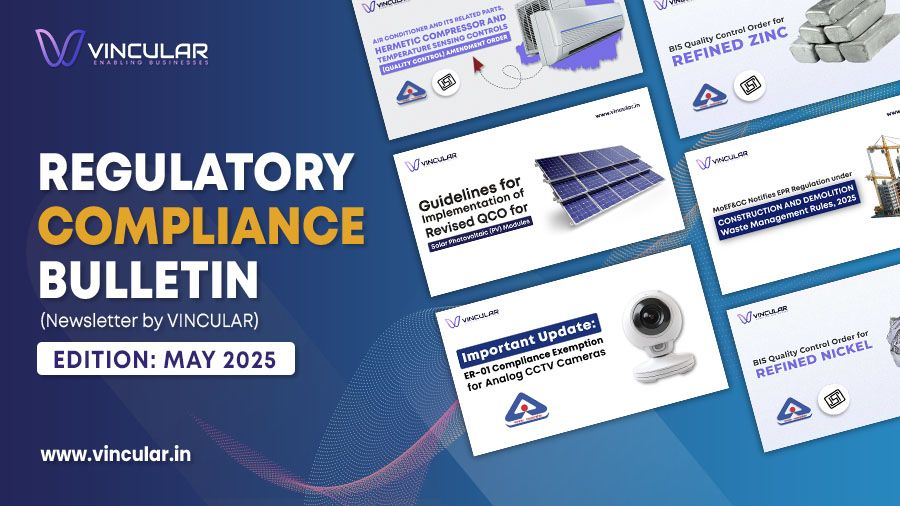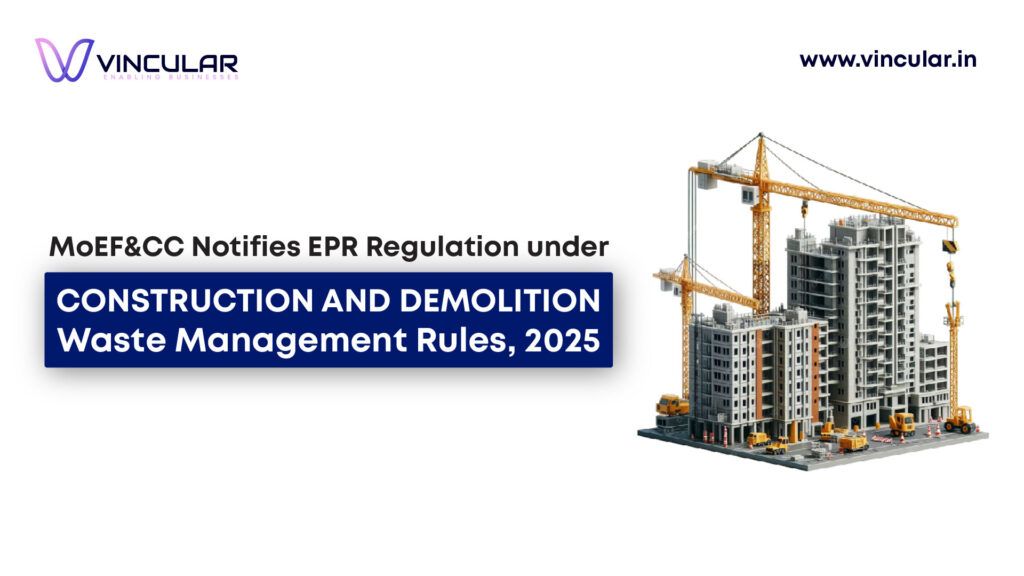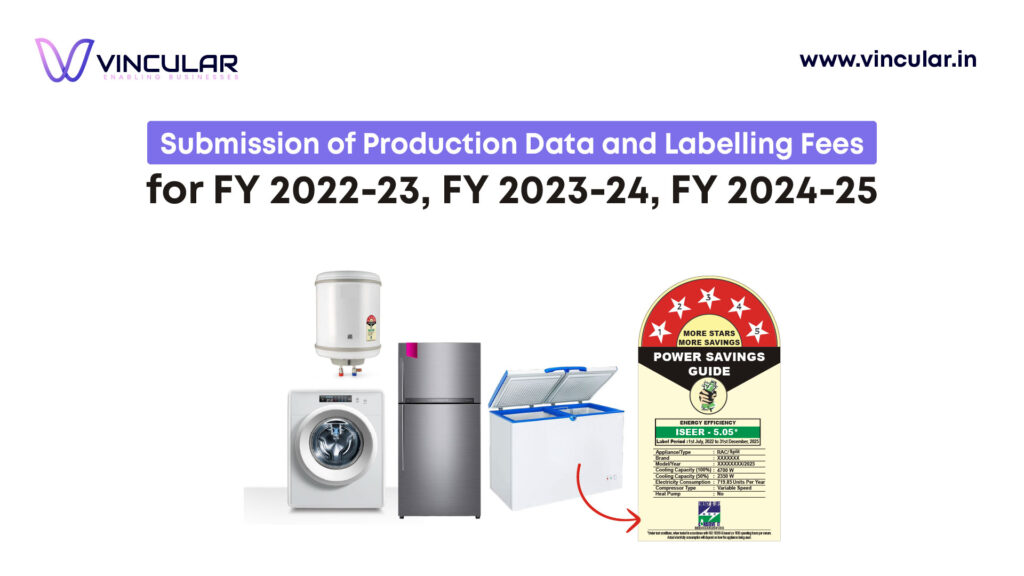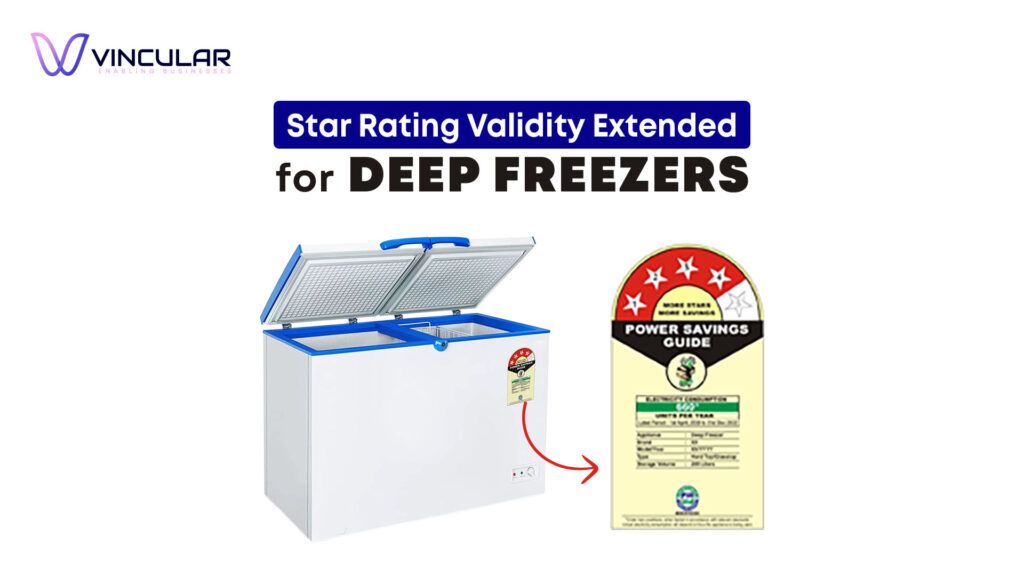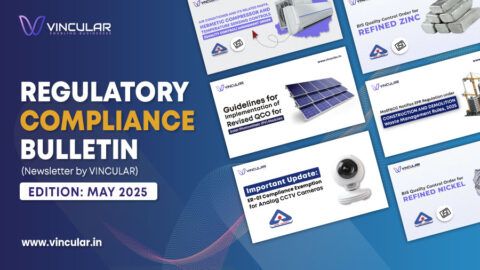BIS-CRS
DEADLINE ALERT for Implementation of IS 16270:2023
The Bureau of Indian Standards (BIS) has issued guidelines for implementing IS 16270: 2023, covering secondary cells and batteries for solar photovoltaic applications. This change comes under the Solar Systems, Devices, and Components Goods Order, 2025.
- The last date for the implementation of the new standard for the existing licenses is 27 July 2025.
- After 27 July 2025. No licence shall be granted as per the old standard.
- Licensees must comply with IS 16270:2023 by submitting a third-party report for the model tested under IS 16270:2014.
- Failure to complete the requirement before 27 July 2025 may result in license cancellation or model deletion.
MNRE Releases Revised Guidelines for Implementation of Solar Photovoltaic (PV) Modules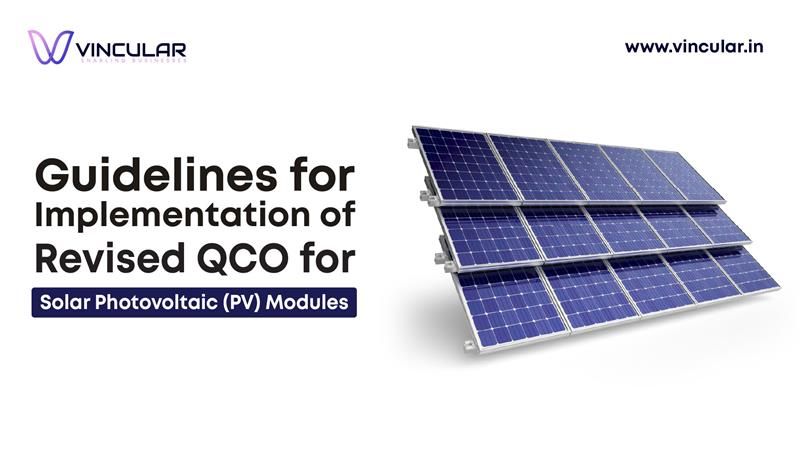
Ministry of New and Renewable Energy (MNRE) has released a QCO for “Solar Systems, Devices and Components Goods Order, 2025” for Solar Photovoltaic (PV) Modules for the implementation of revised standards as seen in below table below.
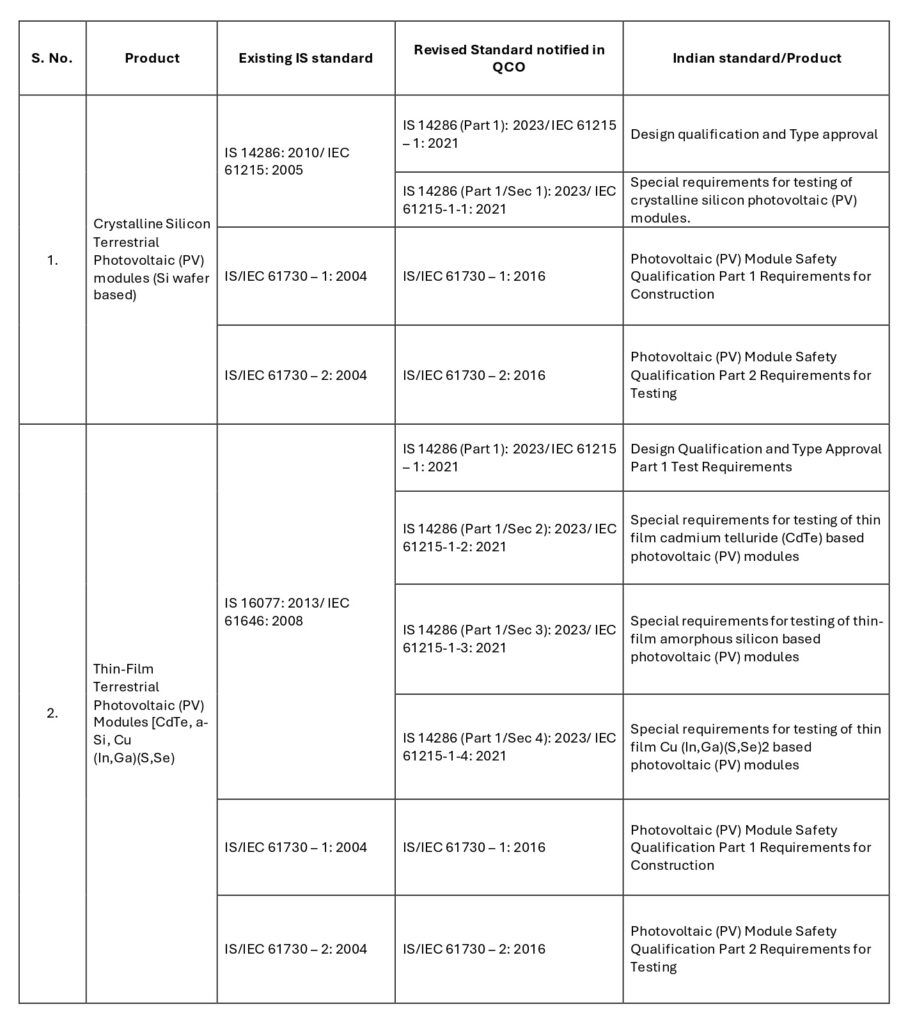
Key Highlights:
- IS 14286 (Part 1): 2023 / IEC 61215-1: 2021 defines the general requirements for all types of Solar PV modules included in the IS 14286 series, serving as the main reference standard for the entire series.
- As per the new QCO of MNRE, Solar PV Module must meet a minimum efficiency level when tested under Standard Test Conditions (STC). Accordingly, Labs must specify the module’s output (in W), area (m²), and calculated efficiency (in %) as per the QCO under the “Description of Module Construction.”
- All manufacturers are required to implement the revised standards and the new QCO within the stipulated timeline.
The official notification can be accessed from here: Implementation guideline for Solar PV modules
CCTV Products Without ER01 Compliance Face Deregistration Under BIS
In 2024, the Bureau of Indian Standards (BIS) announced Essential Requirements (ER01) for CCTV products. According to this notification, security testing under ER01 became mandatory for obtaining BIS CRS registration. The BIS had set 9 April 2025 as the final date for implementing this requirement.
Now, any R-number associated with CCTV cameras not complying with ER01 testing is being removed from the scope of BIS registration. The status of such R-numbers is being marked as “Deferred” on the BIS portal.
To continue selling or importing CCTV products in India, compliance with ER01 testing is now mandatory.
BIS-ISI
BIS Quality Control Order for Refined Nickel
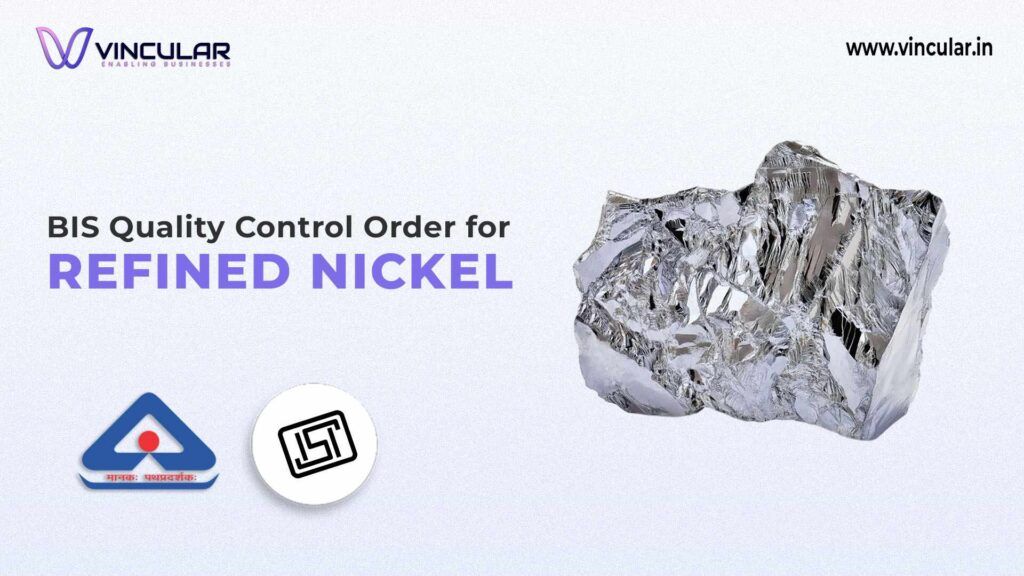
The Ministry of Mines has introduced the Refined Nickel (Quality Control) Order 2025 on 17th April 2025, which will be effective from 17th October 2025.
Under this order, refined nickel must comply with its respective Indian standard IS 2782: 2023 and must display the Standard Mark, authorised by a license from the Bureau of Indian Standards, under Scheme-1 of Schedule-II of the Bureau of Indian Standards (Conformity Assessment) Regulations, 2018.
Implementation date: 17th October 2025
Note: This order does not apply to goods or articles manufactured domestically for export.
The official notification can be accessed from here: Refined Nickel (Quality Control) Order 2025
Air Conditioner and its related Parts, Hermetic Compressor and Temperature Sensing Controls (Quality Control) Amendment Order
The Department for Promotion of Industry and Internal Trade (DPIIT) has introduced the Air Conditioner and its related Parts, Hermetic Compressor and Temperature Sensing Controls (Quality Control) Amendment Order 2025, effective from 17th April 2025.
Under this Quality Control Amendment Order:
- Hermetic Compressors up to 2TR (7000W) capacity are now exempted from mandatory BIS-ISI certification for one year from the date of commencement of this order.
- This exemption applies to manufacturers of air conditioning and refrigeration equipment.
- Previously, only compressors above 2TR capacity were exempted. Now, compressors up to 2TR are also covered.
This exemption has been introduced to address the shortfall in local production and to help meet market demand, particularly to minimise the upcoming heatwave’s impact.
The official notification can be accessed from here: Quality Control Amendment Order for Air Conditioner and its related Parts
BIS (Quality Control) Amendment Order for Various Chemicals
The Ministry of Chemicals and Fertilisers has introduced the (Quality Control) Amendment Order 2025, covering six chemicals: Lauric Acid, Acid Oil, Palm Fatty Acids, Rice Bran Fatty Acids, Coconut Fatty Acids and Hydrogenated Rice Bran Fatty Acids.
The implementation date for these products has been extended to 24th October 2025, from the earlier implementation date of 24th April 2025.
The following goods/articles are covered under this order:
| Sr. No. | Goods/Articles | Indian Standard | Implementation Date |
| 1 | Lauric Acid | IS 10931: 2023 | 24th October 2025 |
| 2 | Acid Oil | IS 12029: 2023 | |
| 3 | Palm Fatty Acids | IS 12067: 2023 | |
| 4 | Rice Bran Fatty Acids | IS 12068: 1987 | |
| 5 | Coconut Fatty Acids | IS 12069: 2023 | |
| 6 | Hydrogenated Rice Bran Fatty Acids | IS 12361: 2023 |
This order requires that all notified goods/articles must comply with their respective Indian Standards. The products must display the Standard Mark under a license from the Bureau of Indian Standards, by Scheme-I of Schedule-II of the Bureau of Indian Standards (Conformity Assessment) Regulations, 2018.
The official notification can be accessed from here: QCO for Various Chemicals.pdf
BIS Quality Control Order for Refined Zinc 
The Ministry of Mines has introduced Refined Zinc (Quality Control) Order 2025 on 17th April 2025, which will be effective from 17th October 2025.
Under this order, refined zinc must comply with its respective Indian standard IS 209:2024 and must display the Standard Mark, authorised by a license from the Bureau of Indian Standards, under Scheme-1 of Schedule-II of the Bureau of Indian Standards (Conformity Assessment) Regulations, 2018.
Implementation date: 17th October 2025
Note: This order does not apply to goods or articles manufactured domestically for export.
The official notification can be accessed from here: Refined Zinc (Quality Control) Order
BIS Quality Control Order for Primary Lead
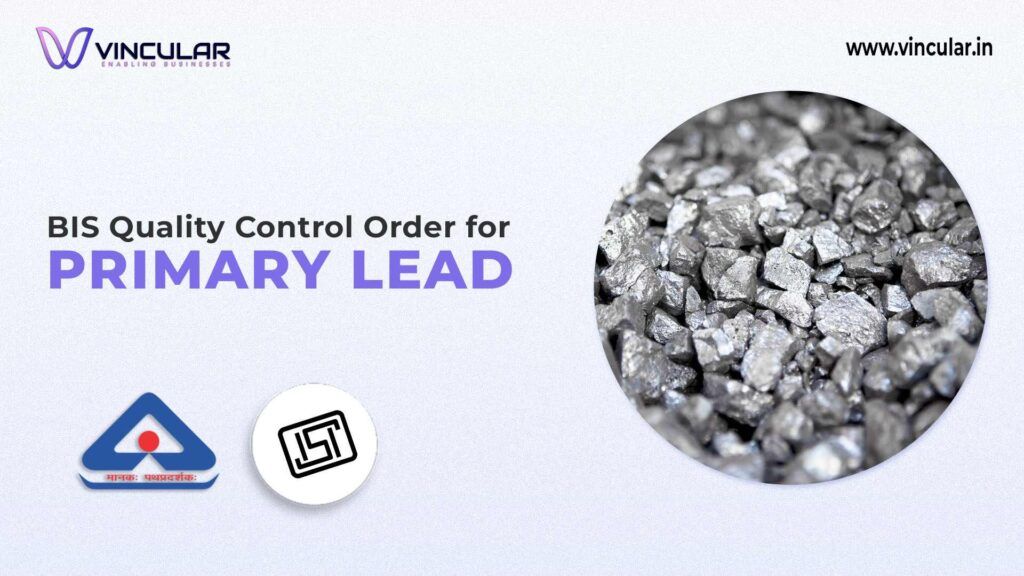
The Ministry of Mines has introduced the Primary Lead (Quality Control) Order 2025 on 17th April 2025, which will be effective from 17th October 2025.
Under this order, manufacturers must comply with their respective Indian standard IS 27: 2023 and must display the Standard Mark, authorised by a license from the Bureau of Indian Standards, by Scheme-1 of Schedule-II of the Bureau of Indian Standards (Conformity Assessment) Regulations, 2018.
Implementation date: 17th October 2025
Note: This order does not apply to goods or articles manufactured domestically for export.
The official notification can be accessed from here: Primary Lead (Quality Control) Order
BIS Quality Control Order for Tin Ingot
The Ministry of Mines has introduced the Tin Ingot (Quality Control) Order 2025 on 17th April 2025, which will be effective from 17th October 2025.
Under this order, the tin ingot must comply with its respective Indian standard IS 26:2024 and must display the Standard Mark, authorised by a license from the Bureau of Indian Standards, following Scheme-1 of Schedule-II of the Bureau of Indian Standards (Conformity Assessment) Regulations, 2018.
Implementation date: 17th October 2025
Note: This order does not apply to goods or articles manufactured domestically for export.
The official notification can be accessed from here: Tin Ingot (Quality Control) Order
WASTE MANAGEMENT
MoEFCC Introduced the EPR regulation on Construction and Demolition Waste Management Rules
The Ministry of Environment, Forest and Climate Change (MoEFCC) has officially notified the Construction and Demolition (C&D) Waste Management Rules, 2025, which will come into effect from April 1, 2026. These rules aim to enhance sustainable waste management practices, promote recycling, and reduce the environmental impact of construction activities
Key highlights:
- Obligated Entities: Producers, recyclers, and operators of waste storage facilities and collection points established by local or development authorities must register on the EPR Centralised Portal managed by the Central Pollution Control Board (CPCB).
- Waste Management Plan Submission: Before starting any project, Producers must submit a detailed Waste Management Plan to CPCB, outlining estimated waste generation, recycling strategies, and disposal methods.
Recycling and Reuse Targets:
- Producers involved in reconstruction and demolition projects must recycle at least 25% of the waste generated by 2025–26, with targets increasing to 100% by 2028–29, as part of their extended producer responsibility.
- Downstream products made from recycled construction and demolition waste include bricks, blocks, tiles, pavers, kerb stones, park benches, drain covers, planters, and other precast items. Producers must use recycled materials in construction and reconstruction activities, starting with 5% of total material in 2026–27, increasing to 25% by 2030–31.
- Starting in 2026–27, road construction projects must use at least 5% recycled construction and demolition (C&D) waste, increasing to 15% by 2030–31.
- Key Targets & Compliance: The portal will track all transactions and facilitate exchanges of EPR certificates.
- Strict Penalties: Non-compliance may lead to cancellation of registration or imposition of environmental compensation.
You can download the draft rules from here: Construction and Demolition (C&D) Waste Management Rules
VOICE COMPLIANCE
Implementation of Calling Name Presentation (CNAP)
The Department of Telecommunications ( DOT ) is fast-tracking the implementation of Calling Name Presentation (CNAP) – a feature that will display the caller’s name on the recipient’s screen, even if the number is not saved.
This initiative is aimed at curbing Unsolicited Commercial Communication (UCC) and reducing spam calls, enhancing transparency and trust in the telecom ecosystem.
🔹This move aligns with India’s broader digital governance objectives.
🔹It prioritises consumer protection and informed communication.
🔹 However, it also underscores the challenge of bridging the digital divide, especially for millions still on 2G networks.
Notably, the DoT has asked telecom service providers to submit a status report on CNAP implementation by April 18, highlighting the urgency behind the rollout.
TRAI Issued SOP for Restoration of Disconnected Telecom Resources
The Telecom Regulatory Authority of India has issued a direction dated 7th April 2025, introducing a Standard Operating Procedure (SoP) for restoring telecom resources disconnected due to alleged Unsolicited Commercial Communication (UCC), under Regulation 29 of the TCCCPR, 2018.
Key Highlights of SOP:
- Complainants (Senders/Principal Entity/Telemarketer) must submit a detailed representation within 60 days of action by the Access Provider, along with required declarations and supporting documents if denying any violation.
- As part of its preliminary review, TRAI requires the Sender to submit the quantity of telecom resources requested for restoration (such as 140XXX promotional numbers, 1600XX transactional/service numbers, and message headers), along with a corrective action plan outlining measures taken to prevent violations; if needed, TRAI may also seek additional documents or inputs from the Sender (Principal Entity/Telemarketer) or the concerned Access Provider.
- If TRAI (Authority) finds that the Access Provider’s investigation lacks sufficient evidence, it may direct full restoration of telecom resources and removal from the blacklist, and may also warn the Access Provider for lack of due diligence.
- Suppose the Sender (Principal Entity/Telemarketer) is found to be in violation, but restoration is deemed appropriate. In that case, TRAI may allow restoration upon payment of charges—₹5,000 per resource, capped at ₹5 lakh—within 15 working days.
- Applications that do not meet the procedural or documentary requirements will be rejected, with the option to reapply after 60 days with full compliance. Once approved, TRAI will instruct Access Providers to restore resources (partially or fully), monitor usage, and assign new identifiers if needed.
- TRAI reserves the right to revoke restored services and enforce enhanced monitoring if non-compliance is found after restoration.
Conclusion:
The SOP issued by TRAI provides a clear mechanism for senders to seek restoration of telecom resources through proper documentation or applicable charges. Stakeholders are advised to carefully follow the process and timelines to ensure timely resolution.
TRAI Releases Key Recommendations for M2M & Critical IoT Services
The Telecom Regulatory Authority of India has issued crucial updates to strengthen the Machine-to-Machine (M2M) ecosystem, with a strong focus on critical IoT services, security, and regulatory clarity.
New Classification Framework:
IoT services will now be classified as ‘critical’ only if they meet two criteria:
- Require ultra-reliable, low-latency, high-availability connectivity
- Disruption could impact national security, the economy, public health, or safety
Domain-Specific Identification:
Rather than entire sectors, specific services within domains (e.g., emergency healthcare, smart grid systems) will be marked critical, ensuring precise regulation.
Security First:
TRAI recommends mandatory certification (MTCTE) of M2M modules used in critical sectors identified by NCIIPC to enhance trust and cybersecurity.
Technology-Neutral Approach:
Whether it’s wired, licensed, or unlicensed wireless, any M2M tech meeting performance benchmarks can be used for critical services.
Simplified SIM & Service Provider Transfers:
DoT to enable smooth transfer of M2M SIMS and M2M Service Provider registrations during mergers/acquisitions—bringing agility to a growing digital infrastructure.
TRAI also proposes an online repository listing critical IoT services and related telecom benchmarks, ensuring transparency and sector-wide awareness.
For full details, please refer official recommendation paper from here: Recommendations on the Issues Related to Critical Services in the M2M Sector
BUREAU OF ENERGY EFFICIENCY
Submission of Production Data and Labelling Fees for FY 2022-23, FY 2023-24, FY 2024-25
BEE have opened the link for submitting the production data upload (i.e. paying of the star labelling fee) for the fiscal year 2022-23 and 2023-24.
All permittees/manufacturers registered under BEE’s Standards & Labelling (S&L) Program are required to complete the respective process as per the given table.
| Financial Year | Deadline to submit the PDU |
| FY 2022-23 | 07th July 2025 |
| FY 2023-24 | 30th April 2025 |
| FY 2024-25 | 30th April 2025 |
Labelling Fees: A 10% annual penalty will be applicable for pending labelling fees.
Nil Production Declaration (if applicable):
- If no production occurred in any quarter, enter “0” for that quarter.
- Upload a Chartered Accountant (CA)-certified statement to support the nil declaration.
- Failure to upload the CA certificate will be considered non-compliant.
Consequences of Non-Compliance: Missing the deadline will lead to the suspension of portal access.
Recently, BEE deactivated access for over 400 permittees who failed to complete the required submissions. This sudden action has disrupted operations for several manufacturers, particularly during the critical summer season.
To ensure seamless business operations and avoid penalties or access restrictions, all permittees/manufacturers are strongly advised to complete the submission process well before the deadline.
You can refer complete notification by clicking on the link below:
BEE issues Extension for Star Rating Validity for Deep Freezers
The Bureau of Energy Efficiency (BEE) has extended the star rating validity for Deep Freezers (under the mandatory regime). The new start rating validity will be from 1st July 2023 to 31st December 2025.
Manufacturers or permit holders wishing to continue selling their models must apply for model continuation by 30th June 2025.
The application link for model continuation will be active from 21st April 2025 to 30th June 2025. No applications will be accepted after the deadline.
For more information, access the official notification: Extension of Star Rating Validity for Deep Freezers
Stay Updated, Stay Compliant – Subscribe to our Newsletter Now!
Whether it’s important compliance notifications or changes in policies and regulations, we’ve got it covered.
Subscribe to our Free Monthly Newsletter or watch our Latest News & Updates Space for daily updates to stay ahead with the latest regulations and notifications without spending a dime!

